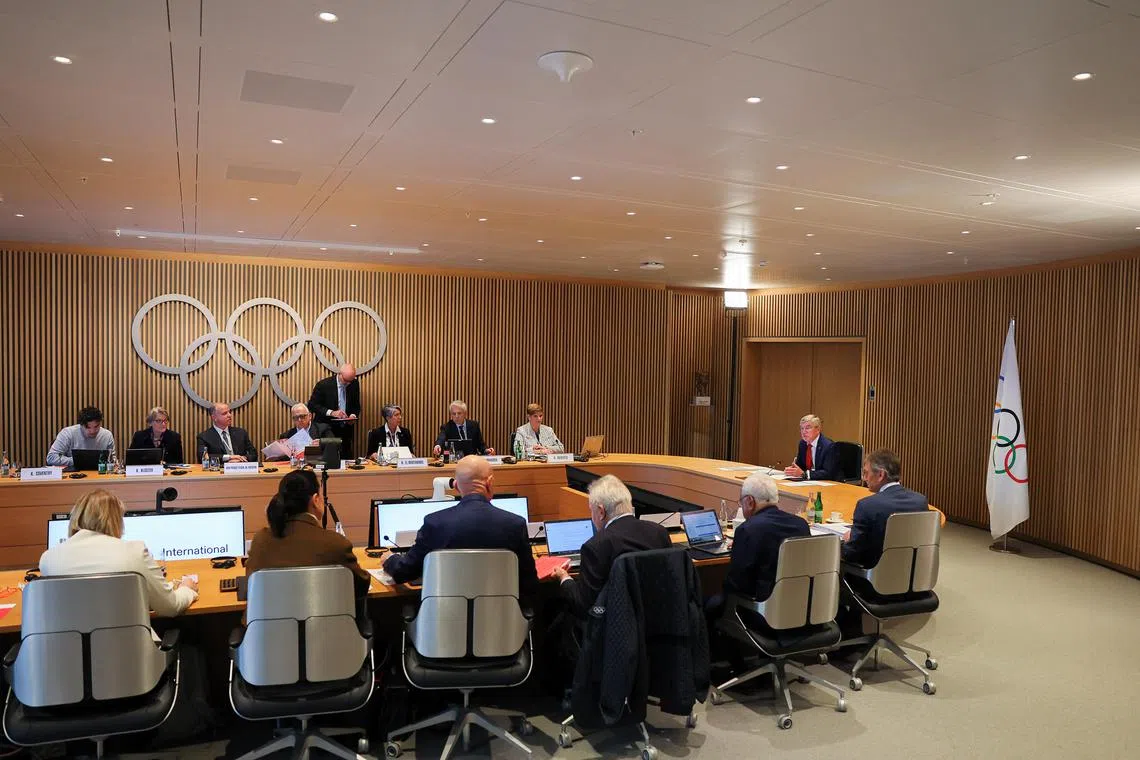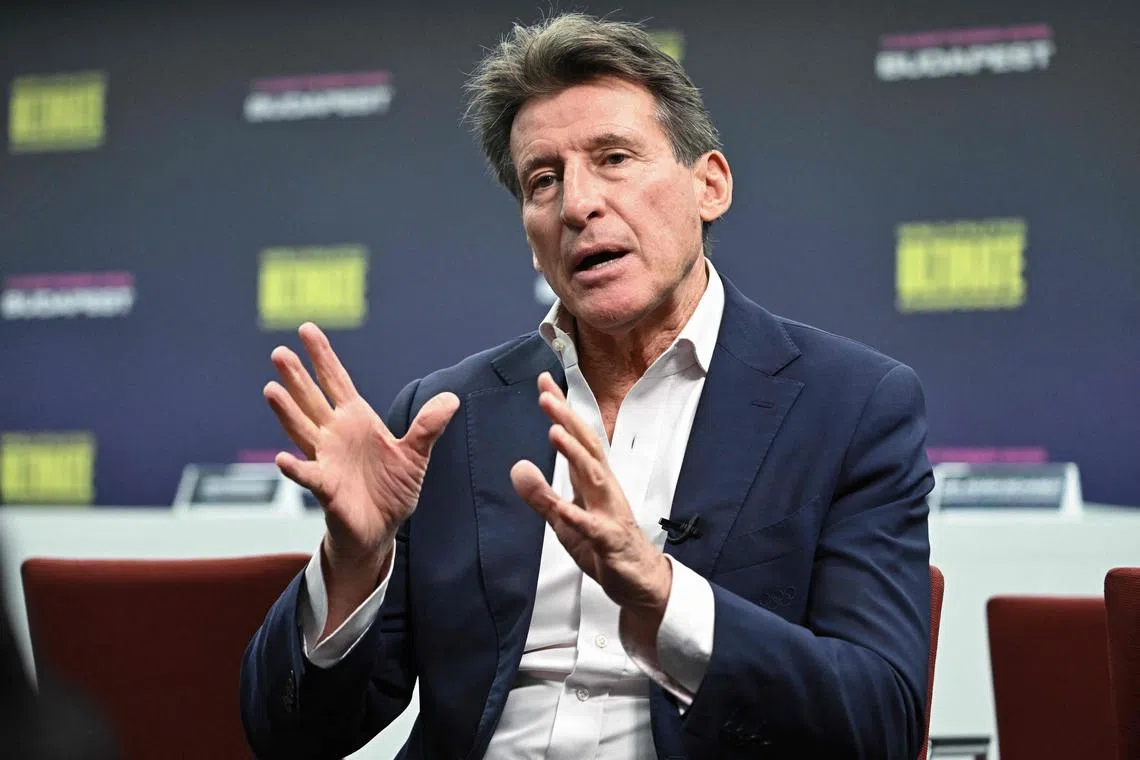Olympic prize money ‘unfair’ and favours the elite, says IOC
Sign up now: Get the biggest sports news in your inbox

Members of the International Olympic Committee executive board meeting in Lausanne, Switzerland, on Dec 3.
PHOTO: REUTERS
LAUSANNE – Offering prize money at the Olympic Games was unfair and was shown at the Paris Games to favour a small number of elite athletes to the detriment of others, the International Olympic Committee (IOC) said on Dec 3.
In a taboo-busting move that sparked hugely mixed reactions, World Athletics president Sebastian Coe announced prize money of US$50,000 (S$67,000) for every track and field winner in Paris.
No other sports federation paid prize money at the Olympics.
IOC spokesman Mark Adams said that the IOC’s executive board had discussed the topic of prize money distribution, raised by international federations and athletes’ representatives, on the first day of a meeting in Lausanne.
“There was a large amount of agreement on the topic, I might even say, unanimity,” he said. “It was a question of principle, efficiency and distribution within the Olympic movement. The biggest argument is one of fairness.”
His comments echo those made by IOC president Thomas Bach to AFP in April and come as seven candidates – including Coe – hone their campaigns to succeed the 70-year-old German as head of the Olympic body.
At the Paris Games, Adams said: “If all the medallists, athletes and teams from all the sports were rewarded, it’d be about 1,000 athletes and teams who would benefit.
“But they mostly come from what you might call the well-funded and privileged National Olympic Committees (NOCs), 65 per cent of the individual medallists and teams winning medals are from 15 NOCs who were on top of the medal tally.
“It would only increase the existing inequalities even further... it was felt by the executive board that this goes against the mission of the International Olympic Committee, and it could very easily downgrade the Olympic Games to an elitist event.”

World Athletics president Sebastian Coe announced prize money of US$50,000 (S$67,000) for every track and field winner at the Paris Olympics.
PHOTO: AFP
Adams added that studies of the Paris Games showed that prize money “would really overwhelmingly benefit a very, very small group of elite athletes to the detriment of others”.
Meanwhile, the IOC is set to distribute US$6.8 billion in revenues from the 2021-24 Olympic cycle, a 12 per cent increase on the previous Olympiad, according to Adams.
That increase came “despite the tough economic situation, global inflation (and) economic hardship”, in reference to the Covid-19 pandemic that saw the 2020 Tokyo Olympics delayed by a year.
IOC revenues, 10 per cent of which go to running the body, come largely from television rights and sponsorship.
They are redistributed to help finance international federations whose sports feature at Summer and Winter Olympics, the 206 national Olympic committees, 50 per cent of the World Anti-Doping Agency’s budget and the organisation of the Olympic Games and Youth Olympics.
Looking ahead to 2032, Adams said the IOC had secured commercial revenues of US$13.5 billion, starting in 2025, “with many commercial partners already also in the pipeline”.
That means that US$7.3 billion is secured for the next Olympiad (2025-28), which includes the 2026 Winter Games in Milan-Cortina and the 2028 Los Angeles Summer Games.
“It’s a clear demonstration that the Olympic brand is, particularly after the Olympic Games in Paris, stronger than ever,” Adams said. AFP, REUTERS


